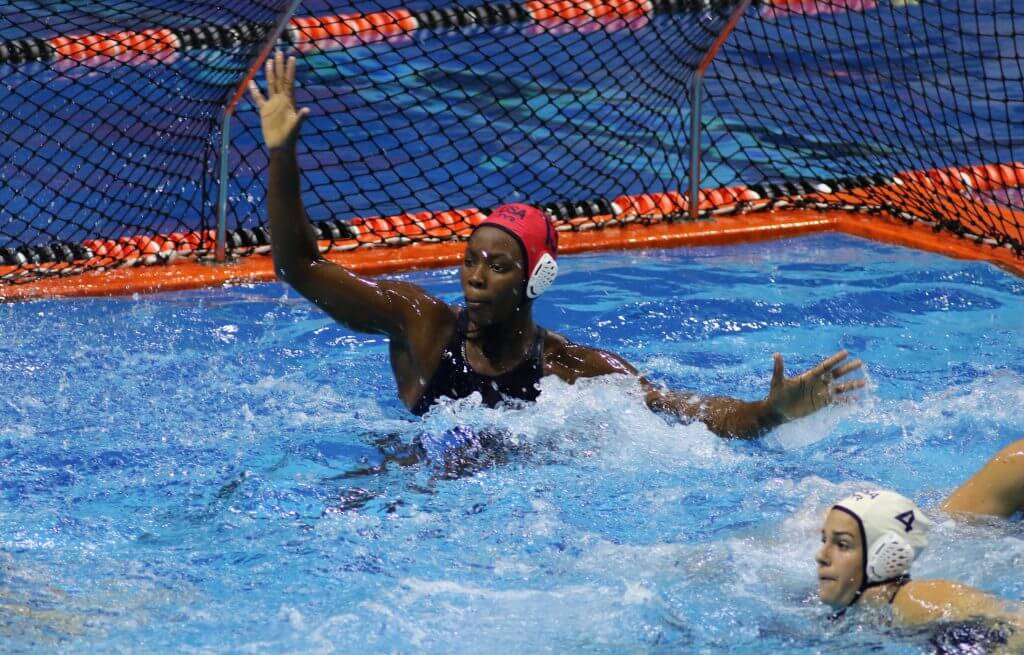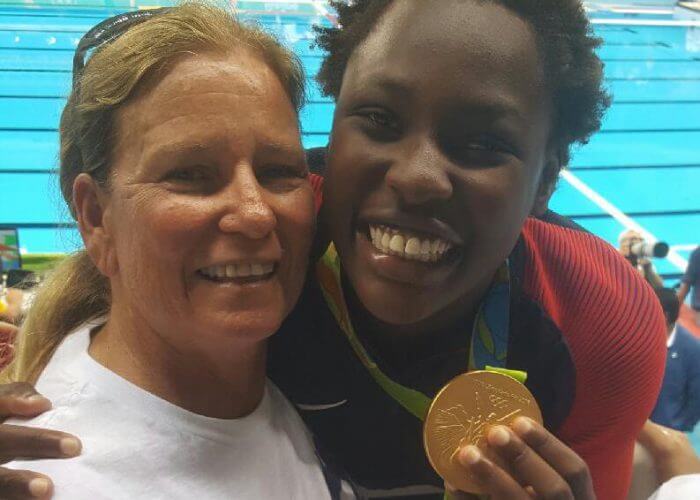USA’s Ashleigh Johnson Speaks With NBC: What Happens When Life Doesn’t Follow Script

USA’s Ashleigh Johnson Speaks With NBC: What Happens When Life Doesn’t Follow Script
Ashleigh Johnson, one of the country’s more visible Olympic athletes due to her success and her race, spoke recently about the challenges of re-tooling her life and outlook as a result of the year-long postponement of the 2020 Olympics.
In a conversation with NBC News, Johnson, who backstopped the U.S. women’s water polo team to gold at the 2016 Rio Olympics, shared how she and her teammates had to reconsider life’s priorities in the wake of the global coronavirus pandemic—one that not only caused the Tokyo Games to be postponed until July 2021, but, more importantly, has taken the lives of an estimated 781,000 people globally.
“When I heard the news that the Olympics were officially postponed, I felt a combination of shock and disbelief that day and for a few days after,” she said in response to a Know Your Own Values feature on the NBC news website. “The Olympic Games is the one event on our schedule that you plan everything around and that you never expect to move or change—so it took me a while to actually accept the postponement and adjust to the new reality of training another year towards our goal.”
In acknowledging how those goals were impacted by Covid-19—for much of 2020 Johnson and her Team USA teammates were deep into training for what was expected to be a third straight Olympic gold for the Americans—the 24-year-old Princeton graduate said that hers and many others’ reality was profoundly impacted by the pandemic.

With Caroll Vaughan at 2016 Olympics. Photo Courtesy: C. Vaughan
“Living with so much uncertainty is difficult for me personally, as I’m sure it is for many people, but what has helped me adjust to the new reality of COVID-19 is putting in effort towards understanding myself, giving myself permission to feel and process the big emotions, negative or positive, and making space to connect with my support system,” said Johnson, named last December as Swimming World’s 2019 Female Player of the Year, her fourth time being so honored.
Given her identity as a Black woman in a sport whose players are almost exclusively white, she was pointed in how her race is an issue that at times must be dealt with—but has never been an impediment to success.
“Being Black in a predominately white sport is an interesting experience,” Ashleigh Johnson explained. “The most prominent thing that I can point to in my experience growing through the sport, especially once I was no longer playing alongside my brothers and sister, is that it was very isolating at times.”
Key to growing up as a water polo athlete was Carroll Vaughan, coach of the Miami Riptides, who also coached Johnson’s sister Chelsea as well as her brothers Blake, Julius and William. Chelsea and Ashleigh also played two seasons together at Princeton, including 2017, when Ashleigh was the first-ever athlete from the East Coast to win the Cutino Award, given annually to the top American male and female collegiate athletes.
[Goalies Rule! Princeton’s Johnson, USC’s Baron Win Cutino Awards]
“Having such high visibility as the first Black American woman Olympian in water polo is a welcome responsibility and an amazing opportunity,” Johnson said. “I have the chance to show how much opportunity there is in water polo from social, educational, and health and wellness perspectives and I’m able to do that while helping to tell a new story for Black people in aquatic spaces.
“We belong here and we thrive here,” she added.
There is a silver lining for all Olympic athletes; the opportunity to pursue their dreams despite many life and health obstacles. For Ashleigh Johnson—cited by former Princeton head coach Luis Nicolao as polo’s “Michael Jordan”—her goal is to help change perceptions about her sport, both in and out of the water.
“My hope for the future of water polo in terms of diversity is that it becomes a space that welcomes and appreciates difference,” Johnson said, then added: “We’re all at our best when we can be wholly present.”



